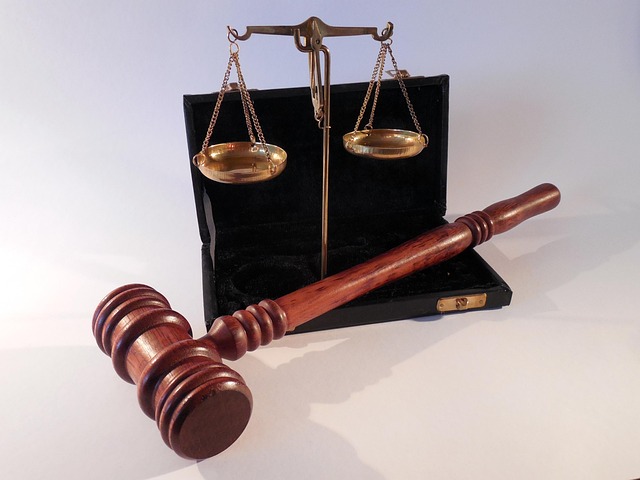Litigation, especially through Due Process Rights in Criminal Trials, is a cornerstone of the legal system, resolving disputes fairly. These rights, including protection from self-incrimination and the right to a fair trial, are vital for maintaining public trust in justice, particularly in complex cases like white-collar crimes. Civil vs. criminal cases differ significantly; civil disputes often seek monetary compensation, while criminal cases involve state accountability for societal harm with potential severe consequences. Fair trial principles, grounded in due process rights, ensure justice and protect individuals, crucial for successful defenses and upholding the integrity of the legal system.
“Litigation, a cornerstone of legal systems worldwide, encompasses various dispute resolution mechanisms. This article offers an insightful journey through different litigation types, emphasizing the critical balance between justice and individual rights. We explore civil versus criminal cases, delving into due process as a fundamental principle in criminal justice. Understanding these dynamics is essential for appreciating the complexities and fairness inherent in legal disputes, especially when safeguarding Due Process Rights in Criminal Trials.”
- Understanding Litigation: An Overview of Legal Disputes
- Due Process in Criminal Justice: Protecting Individual Rights
- Common Types of Litigation: Civil vs. Criminal Cases
- The Impact and Importance of Fair Trial Principles
Understanding Litigation: An Overview of Legal Disputes
Litigation is a fundamental process within the legal system, encompassing various types of disputes resolved through courts. It serves as a mechanism for individuals and entities to seek justice and enforce their rights when faced with disagreements or alleged wrongdoings. At its core, understanding litigation involves grasping the essence of legal disputes, which range from civil disagreements to complex criminal cases.
In the realm of criminal trials, the concept of due process rights is paramount. This ensures that every individual accused of a crime receives fair treatment and protection under the law. Whether dealing with white-collar and economic crimes or addressing issues affecting corporate and individual clients, due process guarantees the right to a fair trial, protection from self-incrimination, and the ability to challenge evidence. For his clients, navigating these legal landscapes can be intricate, but understanding their rights and the litigation process empowers them to seek resolution and protect their interests effectively.
Due Process in Criminal Justice: Protecting Individual Rights
In the realm of criminal justice, the concept of Due Process stands as a cornerstone for protecting individual rights during legal proceedings. This fundamental principle ensures that every person accused of a crime is afforded fair and just treatment under the law. It encompasses various procedural safeguards designed to safeguard against arbitrary or unjust actions by government entities, including the right to a prompt trial, access to legal counsel, and protection from self-incrimination.
The Due Process Rights in Criminal Trials are pivotal for maintaining public trust in the justice system, especially when corporate and individual clients face charges across the country. Skilled legal representatives play a crucial role in navigating these complex rights, ensuring that their clients’ interests are protected throughout the process. By presenting compelling defenses and challenging inadmissible evidence, attorneys can help secure winning challenging defense verdicts, demonstrating the vital role of Due Process in delivering justice.
Common Types of Litigation: Civil vs. Criminal Cases
In the realm of litigation, cases are often categorized into two primary types: civil and criminal. Civil cases involve disputes between private individuals or entities, such as corporations, where compensation for damages is sought. These matters typically revolve around contractual disagreements, personal injuries, property conflicts, or business partnerships gone awry. On the other hand, criminal cases are brought by the state to prosecute individuals or organizations accused of violating public laws and endangering the welfare of societal groups, including philanthropic and political communities.
One key difference between civil and criminal litigation lies in the burden of proof and the potential consequences for defendants. In civil trials, the plaintiff must prove their case by a preponderance of evidence, while criminal cases require the prosecution to establish guilt beyond a reasonable doubt. Moreover, criminal cases often carry more severe penalties, including jail time, fines, and restrictions on due process rights in criminal trials, which vary based on jurisdiction and the nature of the crime. In contrast, civil cases usually result in monetary damages or specific performance, focusing on remedies to redress harm rather than punishment.
The Impact and Importance of Fair Trial Principles
The principles of a fair trial are fundamental to ensuring justice and safeguarding individual liberties. These principles, deeply rooted in due process rights in criminal trials, dictate the way legal proceedings should unfold, providing a framework that protects defendants from arbitrary or unjust decisions. The impact of these guidelines is profound, especially in high-stakes cases involving complex issues like white-collar and economic crimes, where the consequences can be severe.
By upholding fair trial standards, courts enhance the integrity of the justice system. This not only ensures that every defendant receives a thorough and impartial review but also fosters public trust in the legal process. The ability to navigate these principles effectively is crucial for achieving winning challenging defense verdicts, demonstrating the importance of a well-informed and respectful approach to litigation.
In navigating the complex landscape of litigation, understanding the distinctions between civil and criminal cases, as well as the paramount importance of due process rights in criminal trials, is essential. This article has provided an overview of various litigation types, highlighting the significance of fair trial principles in safeguarding individual liberties. By recognizing the unique characteristics and implications of each case type, we can foster a more just and equitable legal system that respects the fundamental rights of all involved.






